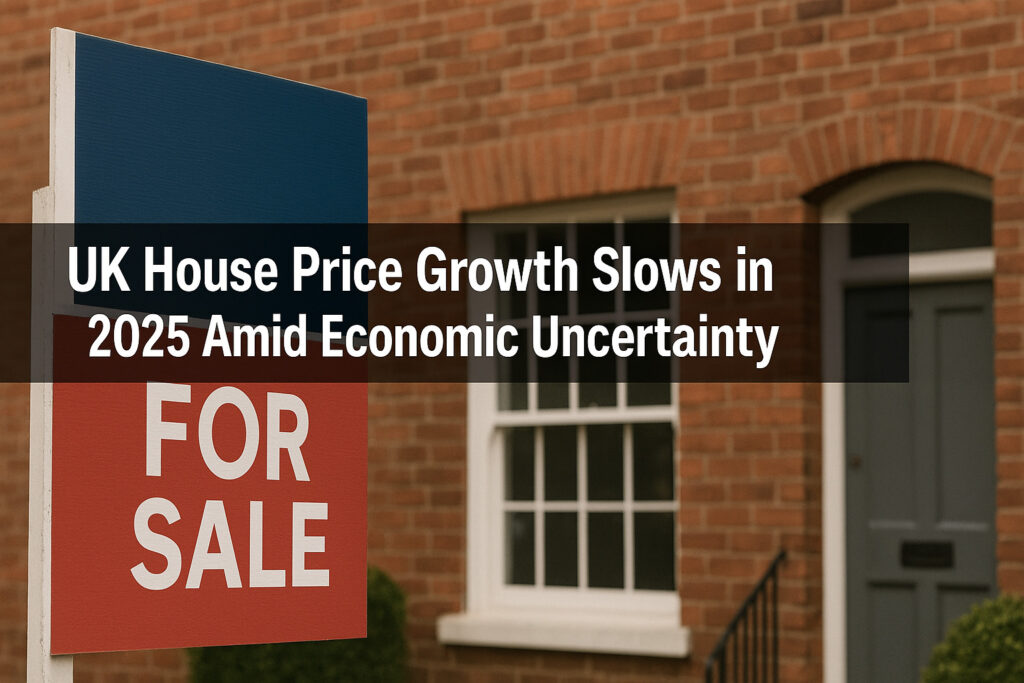Rising Pressures Forcing Landlords to Reconsider the Private Rented Sector
Recent research indicates a significant shift in the UK rental landscape—one in three landlords is actively considering exiting the Private Rented Sector (PRS).
This potential exodus is fueled by a perfect storm of regulatory pressures, rising costs, and shifting market dynamics that have left landlords questioning the long-term viability of property investment.
Many landlords feel squeezed with new legislation such as the Renters (Reform) Bill, increasing mortgage interest rates, taxation changes, and stricter compliance requirements.
As a result, the UK’s rental market may be on the brink of a significant transformation, with profound implications for tenants, letting agents, and housing supply.
Key Factors Driving Landlords Away from the PRS
Mounting Regulatory Burdens
The Renters (Reform) Bill, set to introduce sweeping changes such as abolishing Section 21 “no-fault” evictions, has already unsettled many landlords.
While the bill aims to enhance tenant security, it simultaneously reduces landlords’ flexibility and control, increasing their exposure to problematic tenants and protracted legal disputes.
Other compliance measures add cost and complexity, including minimum EPC ratings, mandatory electrical safety checks, and proposed licensing schemes. Many small-scale landlords feel overwhelmed and under-supported by these rapidly shifting goalposts.
Financial Strain from Rising Interest Rates
Landlords with buy-to-let mortgages have been particularly hard hit by the Bank of England’s base rate hikes. Many fixed-rate products are expiring, pushing landlords onto higher standard variable rates.
This drastically reduces profit margins and, in some cases, turns rental properties into loss-making ventures.
The once-lucrative passive income model is increasingly replaced by financial risk and unpredictability, especially for landlords who are heavily leveraged or operate in regions with capped rents.
Taxation Policy and Erosion of Profits
Government policy has also made the PRS less attractive by reducing mortgage interest relief, higher capital gains tax, and the additional 3% stamp duty surcharge on second homes.
These tax changes have disproportionately affected private landlords, especially those operating as individuals rather than through limited companies.
The phasing out of tax-deductible mortgage interest, in particular, has led many landlords to rethink their investment strategy, shifting to holiday lets, serviced accommodation, or exiting the sector altogether.
Impact on Tenants and the Wider Housing Market
Shrinking Supply, Rising Rents
If a third of landlords were to follow through on their intention to sell or exit the PRS, the result would be a massive contraction in rental property availability.
This tightening of supply will undoubtedly lead to fierce competition among tenants and soaring rental prices, especially in urban areas like London, Manchester, and Birmingham.
Tenants already grappling with cost-of-living pressures may face even more significant affordability challenges, with fewer options and diminished housing standards due to reduced investment in property upkeep.
First-Time Buyers May Benefit—But at What Cost?
Some analysts suggest landlords exiting the PRS could create opportunities for first-time buyers, particularly in regional towns and cities where buy-to-let investors had previously dominated.
However, many of these properties are unsuitable for owner-occupation or are in areas where demand for rentals far exceeds supply.
The actual cost will be borne by tenants, who have no viable path to homeownership and rely on private rentals for long-term housing.
Opportunities for Professional Landlords and Letting Agents
Consolidation in the Rental Market
As smaller landlords exit, portfolio landlords and professional investors may step in to absorb supply, creating a more corporate-style rental market.
This consolidation presents an opportunity for letting agents and estate managers to partner with high-volume landlords, offering full-service management and compliance solutions.
Those landlords who remain in the sector will increasingly rely on expert support to navigate complex regulations, maintain tenant relations, and safeguard their investments.
High Demand Means Strong Yields for the Resilient Few
Despite the pressures, demand for rental properties remains sky-high. Landlords who adapt—by improving energy efficiency, offering longer tenancies, or restructuring their portfolios through limited companies—benefit from higher rents and lower void periods.
Agents who proactively support landlords with tenant screening, rent guarantee insurance, and EPC upgrades will cement their value in this evolving market.
What Landlords Should Do Now
Review Portfolio Performance
Landlords should conduct a full financial review of their portfolio, considering rental income, mortgage costs, taxation, and maintenance expenses.
Seeking advice from property accountants and mortgage brokers can reveal hidden inefficiencies or opportunities for restructuring.
Switch to Limited Company Ownership
Operating via a limited company structure can offer considerable tax advantages, especially considering mortgage interest restrictions.
While the initial setup and compliance are more involved, this route is increasingly popular for long-term investors.
Invest in Compliance and Tenant Experience
Instead of selling, landlords can focus on future-proofing their properties—upgrading EPC ratings, installing modern safety features, and offering flexible tenancy options.
A better tenant experience leads to fewer voids and less turnover, directly boosting profitability.
Government and Industry Response Is Crucial
The risk of a mass landlord exodus calls for urgent government intervention. Policymakers must balance tenant protections and investor confidence or risk further destabilising a fragile rental market.
Industry bodies call for reinstating tax reliefs, more apparent legislation timelines, and financial incentives for sustainable upgrades. Without these, the UK risks turning a shortfall into a full-blown housing crisis.
FAQs
Q: Why are so many landlords considering leaving the PRS?
A: A combination of new regulations, tax changes, rising mortgage rates, and shrinking profit margins are making buy-to-let less attractive, particularly for small private landlords.
Q: Will this lead to higher rents?
A: Yes. Reduced rental property supply will likely increase competition among tenants, pushing up average rents, especially in major cities and university towns.
Q: Can the government reverse this trend?
A: By offering tax incentives, slowing down regulatory changes, and supporting EPC improvements, the government could re-engage disillusioned landlords.
Q: Should landlords sell or restructure?
A: Restructuring via limited companies and enhancing tenant services may provide a more sustainable long-term strategy than selling.
Q: How can letting agents help?
A: By offering complete compliance services, tenant screening, rent protection, and energy efficiency advice, agents can play a crucial role in helping landlords adapt and thrive.
Read our other Blogs:
Choosing The Right London Estate Agent: What You Must Know
JP Morgan Signs 400,000 Sq Ft City Of London Pre-Let With Squarepoint – London Estate Agency





